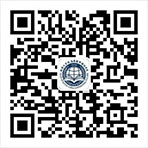
The School of Political Science & International Relations, Tongji University was officially established in 2009. In 1986, Tongji established the Department of Social Sciences to rebuild humanities and explore the discipline development of political science, thus leading to to the rapid rise of international studies. In 2003, Tongji established the Department of Political Science & Administration, followed by gradual establishment of institutions for international studies. In 2009, the School of Political Science & International Relations, Tongji University was established on the basis of two departments, i.e. the Department of Political Science & Administration and the Department of Sociology, and three undergraduate programs, i.e. Political Science & Administration, International Politics, and Sociology.
Now the School consists of four departments: Political Science, International Relations, Diplomacy, and Sociology. There are two undergraduate programs in Political Science & Administration (including International Politics) and Sociology. The School has research directions in political theory, comparative politics, international relations, and international strategy, with the right to confer a doctor’s degree in the first-level discipline of political science. Also, it has master’s degree authorization points for second-level disciplines such as political theory, Chinese and foreign political systems, international relations, international politics, and diplomacy. It has a post-doctoral research station for the first-level discipline of political science.
Since 2016, based on the principles of openness, fairness and justice, and with the tenet of “building the School on sound institutions, prospering it through academic excellence, making it stronger throughdiscipline development, and putting students first,” the School has vigorously deepened reform and achieved positive results, including the establishment of a complete discipline platform. At the level of the teaching platform, in 2018, the School was approved to establish a doctor’s degree authorization point for the first-level discipline of political science, and the four disciplines of political theory, comparative politics, international relations, and international strategy. In 2019, it was approved to establish a post-doctoral research station for the first-level discipline of political science. Since then, the School has laid a solid foundation for through-type cultivation and has become more mature in cultivating versatile talents. At the level of scientific research and think tank platform, the Institute for China & World Studies was established at Tongji in 2015. In 2018, approved by the Cyberspace Administration of China (CAC) and the Ministry of Education (MOE), the Tongji Base for Research on International Governance of Cyberspace was established. The four institutes by country or region under the MOE, i.e. the Center for Asia-Pacific Studies, the Center for European Studies, the Center for Korean Studies, and the Center for Polar and Ocean Studies, were rebuilt or founded at Tongji. Other newly established scientific research institutions include the International Research Center for Marxist Theory and Practice, the Research Center for Comparative Politics, and the Center for China Studies, making clear the direction of scientific research for the School.
By adhering to the principle of social recruitment and internal cultivation, the School has built a faculty team featuring optimized professional structure, reasonable age composition, and a certain degree of academic influence at home and abroad. The School now has 47 faculty members, including 17 professors, 16 associate professors, and 14 lecturers and assistant professors, of which 43 have a doctorate degree and 37 have more than one year of experience studying abroad. Since 2016, the School has recruited two chief expertsunder the Central Marxist Theory Research and Construction Project of MOE as distinguished professors at Tongji. The faulty members are holders of such titles as a leading talent in Philosophy and Social Sciences of the National “Ten Thousand Talents Program”, a cultural figure & talent in the “Four Talent Programs” by the Publicity Department of the CPC Central Committee, a Shanghai “Pujiang Talent”, and a “Shanghai Chenguang Scholar”, etc. The School has built a discipline construction advisory committee composed of a number of leading experts in political science. It has appointed more than 20 well-known scholars at home and abroad as adjunct professors, three as research fellows at the Institute for Advanced Studies, and three (two of them are young top talents under the National “Ten Thousand Talents Program”) as adjunct doctoral supervisors.
The School is committed to cultivating elites with a global vision and strategic thinking, who are able to provide innovative, interdisciplinary solutions to major practical problems, and have a good knowledge of national governance and international affair. It offers more than 200 Chinese and English major courses on political science, international relations, diplomacy and sociology, etc. Besides, it has published more than 20 textbooks, undertaken more than 30 educational reform projects, and won nearly 20 teaching achievement awards including Branded Courses of MOE, Shanghai Excellent Textbooks, and Shanghai First-Class Undergraduate Courses. In 2019, it was selected for the first batch of pilot schools in the “three all-rounds education” (all members, all processes, and all dimensions) comprehensive reform (an initiative designed to improve students’ international vision) of Tongji University. Now it has gradually formed a new training model with its own characteristics, that is, relying on the integrated development of undergraduate, master and doctoral programs, placing internal focus on innovation and entrepreneurship and the second classroom, and external focus on foreign exchanges and degree cooperation, taking tutor guidance and student services as a support, in order to pursue the “three all-rounds education” concept throughout. The School actively admits foreign students and offers double degree programs in partnership with University of Turin, University of Florence, and Free University of Brussels, etc. Every year, it sends students to well-known universities in Asia, Europe and America for academic visits. The high quality of students in various majors has been highly recognized by the society. Since 2016, students at the School have won more than 70 national, provincial and university awards in social practice, innovation and entrepreneurship, and other activities and competitions, including the first prize of Shanghai Undergraduate Social Sciences Forum 2016, the gold award of the Practice Challenge of China College Students’ Entrepreneurship Competition 2016, the gold award of the Social Entrepreneurship Challenge of Shanghai College Students’ Entrepreneurship Competition 2018, the gold award of the Social Entrepreneurship Challenge of China College Students’ Entrepreneurship Competition 2018, the special prize of the Zhixing Cup Shanghai College Students’ Social Practice Project Competition 2018, and the first prize (group and individual) of the first National (Jinan) Undergraduate Forum on International Politics 2019.
The School boasts unique and distinctive scientific research. Since 2016, it has focused on integrating the studies of governance, strategy and thought history. It has gradually established an open structure characterized by “one body and two wings”. Specifically, one body refers to China & world studies, and two wings refer to Asia-Pacific studies (with East Asian studies as a priority) and European studies (with German studies as a priority). Under this structure, the School integrates global governance and regional governance for international relations studies, national governance and grassroots governance for political science, and social governance and community governance for sociology, to coordinate the research directions of various disciplines. The School strives to play a leading role in areas such as traditions of China’s strategy, comparison of strategies for the rise of major powers, comparison of major powers’ strategies after rise. At the same time, with the support of the Institute for China & World Studies, the School has initiated a series of brand events such as the Forum on China & World Studies, the Youth Forum on China & World Studies, and Global Young Scholars Forum. Major publications include Chinese Journal of Strategic Studies (published in the form of book, in Chinese and English languages, with its full text included in CNKI), Studies inGrand Strategy by Peking University Press, The Tradition of China Strategy and Major Power Strategy by People’s Publishing House, Social Sciences Series of Tongji University by China Social Science Press, China’s National Strategy and Northeast Asia Strategy by China Economic Publishing House, and Chinese Strategy Studies and Governance and Strategy by Shanghai People’s Publishing Group. Thanks to these, the School has established an important position in the field of strategy studies.
The School has reaped fruitful results in scientific research. Since 2016, the faculty team has undertaken more than 150 research subjects, including two new major programs, one key program, seven general programs, two youth programs, two projects on translating Chinese academic studies into foreign languages, and three late-stage funding projects under the National Social Science Fund of China; three new key subjects and one late-stage funding major subject for philosophy and social sciences of MOE, and two textbooks dedicated to the Central Marxist Theory Research and Construction Project under key subjects in philosophy and social sciences of MOE; one new national major talent program, six ministerial/provincial talent programs, and more than 40 national or provincial/ministerial subjects. It has published more than 400 academic papers, including more than 240 SSCI, A&HCI and CSSCI journal papers, published 66 academic works, and won more than 10 awards for scientific research at or above the provincial/ministerial level.
The School has established high-level research teams in China & World Studies, Chinese Diplomatic Theory and Practice, Asian Studies, European and Sino-German Relations Studies and other fields. The relevant achievements have been highly recognized by the domestic academic community. It is qualified to undertake a number of projects commissioned by the National Security Commission of the CPC Central Committee, the Office of the Leading Group for Foreign Affairs the CPC Central Committee, the Ministry of Foreign Affairs, the Ministry of Science and Technology, and the State Oceanic Administration, etc. The subject leaders are often invited to participate in the policy consultation meeting held by the National Security Commission, the National Development and Reform Commission, the Office of the Leading Group for Foreign Affairs, the Ministry of Foreign Affairs, the State Oceanic Administration and other departments. Since 2016, the School has prepared more than 100 decision-making advisory reports for the General Office of the Central Committee, the General Office of the State Council, relevant national ministries and commissions, and Shanghai municipal government, etc., receiving more than 30 positive comments from the central leaders.
The School is constantly optimizing its international development plan, ranking top in Tongji University in terms of key indicators such as international admissions. Due to its characteristics of internationalization, the School is among the first ten schools of Tongji University on a pilot program for the “three all-rounds education” comprehensive reform. The School has actively partnered with a wide range of universities and research institutions in the US, the UK, Germany, Japan, Singapore, and South Korea, etc. on academic seminars, international forums, and scientific research project cooperation. It offers double master’s/bachelor’s degree programs, summer courses, and non-degree exchange programs together with Free University of Brussels, University of Bonn, Free University of Berlin, University of Hamburg, Nanyang Technological University, Kyung Hee University, University of Florence, and University of Indonesia, etc. Besides, it co-organizes the Shanghai-Busan Cooperation Forum with Dongseo University, the China-US Arctic Social Science Forum with the Center for Strategic and International Studies (CSIS), the China-Japan Young and Middle-Aged Scholars’ Strategic Dialogue with the University of Tokyo, and the China-Japan Economic Strategic Dialogue with Canon Institute for Global Studies, etc., to promote the international development of disciplines and better serve the development of China and Shanghai.
(updated May 2021)






